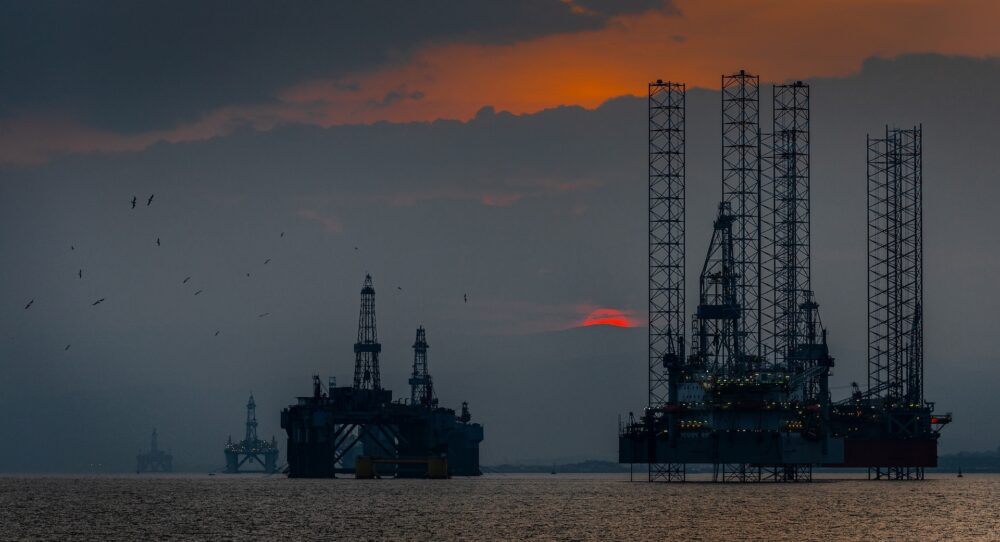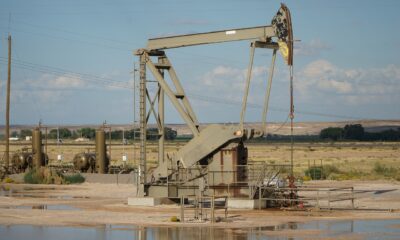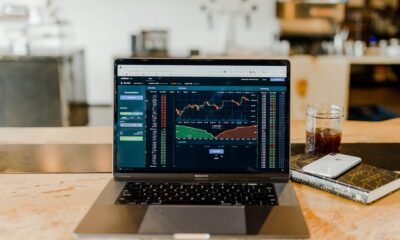Markets
Repsol’s Profit Falls 14% in One Year, to €2.78 billion
Last July, after its approval by the General Shareholders’ Meeting, Repsol paid a final dividend of €0.35 gross per share out of 2022 profits, which was added to the remuneration paid in January. This increased the cash dividend by 11% over the previous year, to €0.70 gross per share. Repsol expects to end 2023 with a total organic investment of around €5.2 billion, 24% more than last year.

Repsol’s net profit to September, at €2.78 billion, fell by 14% compared to the same period in 2022, in a context marked by lower hydrocarbon prices and refining margins compared to last year, when they soared due to the energy crisis following Russia’s invasion of Ukraine.
Adjusted profit, which specifically measures the performance of the businesses, stood at €3.81 billion at the end of September, down 19% from a year ago.
The company’s net debt stood at €1.85 billion at the end of the third quarter, with liquidity reaching €10.65 billion, enough to cover more than five times its short-term gross debt maturities.
Repsol will continue to accelerate with these results in its ‘road map’ of payments to its shareholders and has announced a 14% increase in the remuneration to be paid next January, to €0.4 gross per share.
Read more about Repsol and find the most important business news of the day with our companion app Born2Invest.
Last July, Repsol paid a final dividend of €0.35 gross per share out of 2022 profits
This year, the energy company has already brought forward the remuneration target for its more than 520,000 shareholders that it had planned to achieve between 2024 and 2025 as part of its strategic plan, which it will review in the first quarter of next year after smashing all its targets. Thus, adding dividends and capital reductions will mean the distribution of close to €2.4 billion euros in 2023 as a whole.
Last July, after its approval by the General Shareholders’ Meeting, Repsol paid a final dividend of €0.35 gross per share out of 2022 profits, which was added to the remuneration paid in January. This increased the cash dividend by 11% over the previous year, to €0.70 gross per share.
In addition, the company plans to reduce its share capital this year by 110 million shares which, added to the 200 million shares redeemed in the 2022 financial year, would represent a total of 310 million shares, equivalent to 20% of the existing share capital at December 2021 and well above the target set out in its 2021-2025 ‘roadmap’.
The energy company highlighted that these solid results for the period from January to September allow it to advance in the transformation of the group “with the development of low-carbon industrial projects, the increase in its portfolio of renewable assets and the launch of a differential multi-energy offer for customers in Spain”.
As part of this transformation and decarbonization process to become zero net emissions by 2050, Repsol invested €4.36 billion between January and September, which represents an increase of 82% compared to January- September 2022, mainly in low-carbon projects.
35% of this investment effort so far in 2023 was by destination. Spain, with 41%, was the main focus of the group’s investment destination, followed by the United States, with 37%.
Repsol made investments of €5.2 billion
Repsol expects to end 2023 with a total organic investment of around €5.2 billion, 24% more than the nearly €4.2 billion it invested last year.
Repsol’s CEO, Josu Jon Imaz, considered 2023 to be a year of “profound transformation” for the energy company, “with firm progress in decarbonization and in consolidating
our multi-energy profile.”
“In a volatile environment like the current one, we are obtaining solid results, increasing our shareholder remuneration, and supporting our customers,” he said.
__
(Featured image by Ben Wicks via Unsplash)
DISCLAIMER: This article was written by a third party contributor and does not reflect the opinion of Born2Invest, its management, staff or its associates. Please review our disclaimer for more information.
This article may include forward-looking statements. These forward-looking statements generally are identified by the words “believe,” “project,” “estimate,” “become,” “plan,” “will,” and similar expressions. These forward-looking statements involve known and unknown risks as well as uncertainties, including those discussed in the following cautionary statements and elsewhere in this article and on this site. Although the Company may believe that its expectations are based on reasonable assumptions, the actual results that the Company may achieve may differ materially from any forward-looking statements, which reflect the opinions of the management of the Company only as of the date hereof. Additionally, please make sure to read these important disclosures.
First published in EL INDEPENDIENTE. A third-party contributor translated and adapted the article from the original. In case of discrepancy, the original will prevail.
Although we made reasonable efforts to provide accurate translations, some parts may be incorrect. Born2Invest assumes no responsibility for errors, omissions or ambiguities in the translations provided on this website. Any person or entity relying on translated content does so at their own risk. Born2Invest is not responsible for losses caused by such reliance on the accuracy or reliability of translated information. If you wish to report an error or inaccuracy in the translation, we encourage you to contact us

-

 Business2 weeks ago
Business2 weeks agoThe TopRanked.io Weekly Digest: What’s Hot in Affiliate Marketing [NordVPN Affiliate Program Review]
-

 Impact Investing2 days ago
Impact Investing2 days agoVernazza Autogru Secures €5M Green Loan to Drive Sustainable Innovation in Heavy Transport
-

 Cannabis1 week ago
Cannabis1 week agoCannabis Company Adopts Dogecoin for Treasury Innovation
-

 Business4 days ago
Business4 days agoLegal Process for Dividing Real Estate Inheritance
























